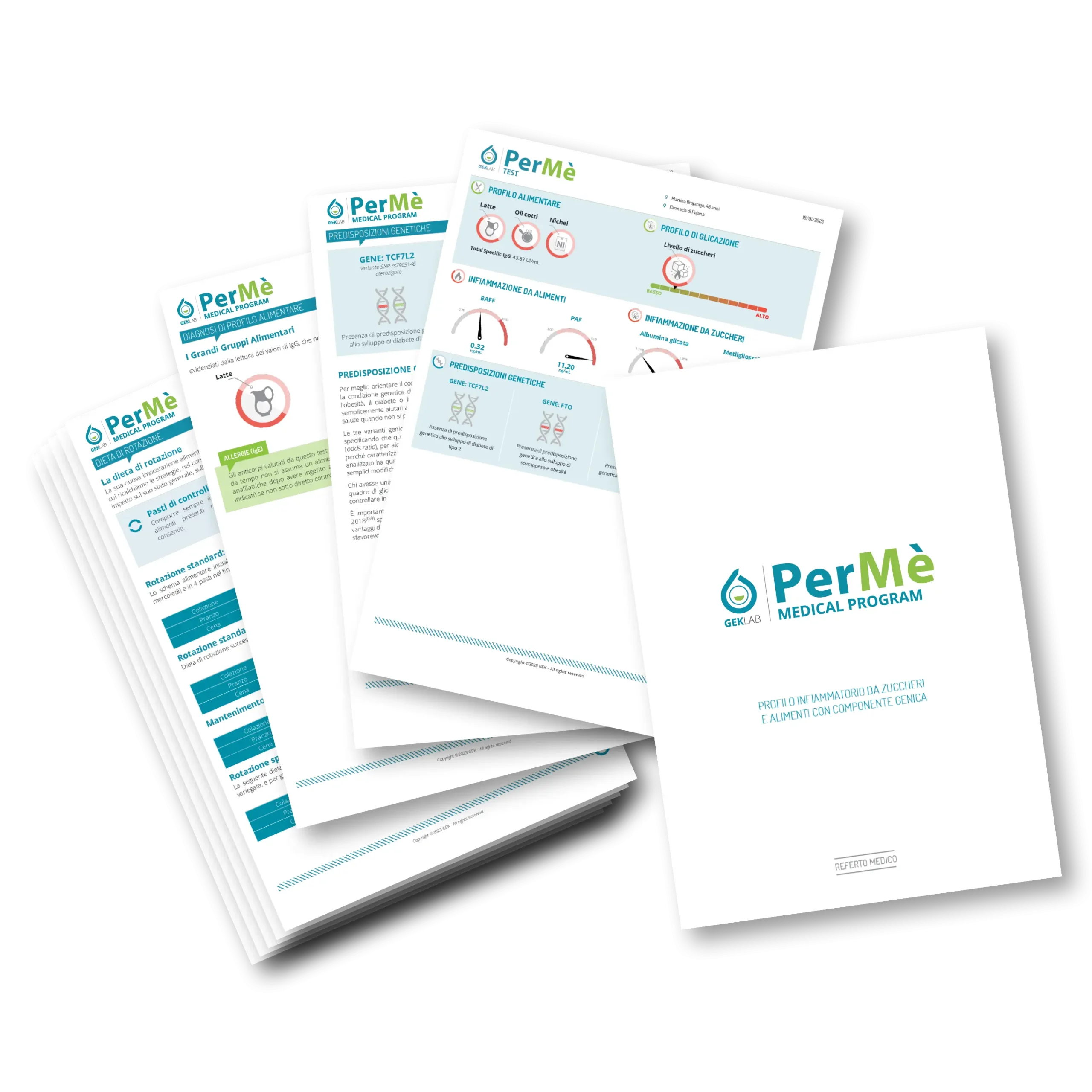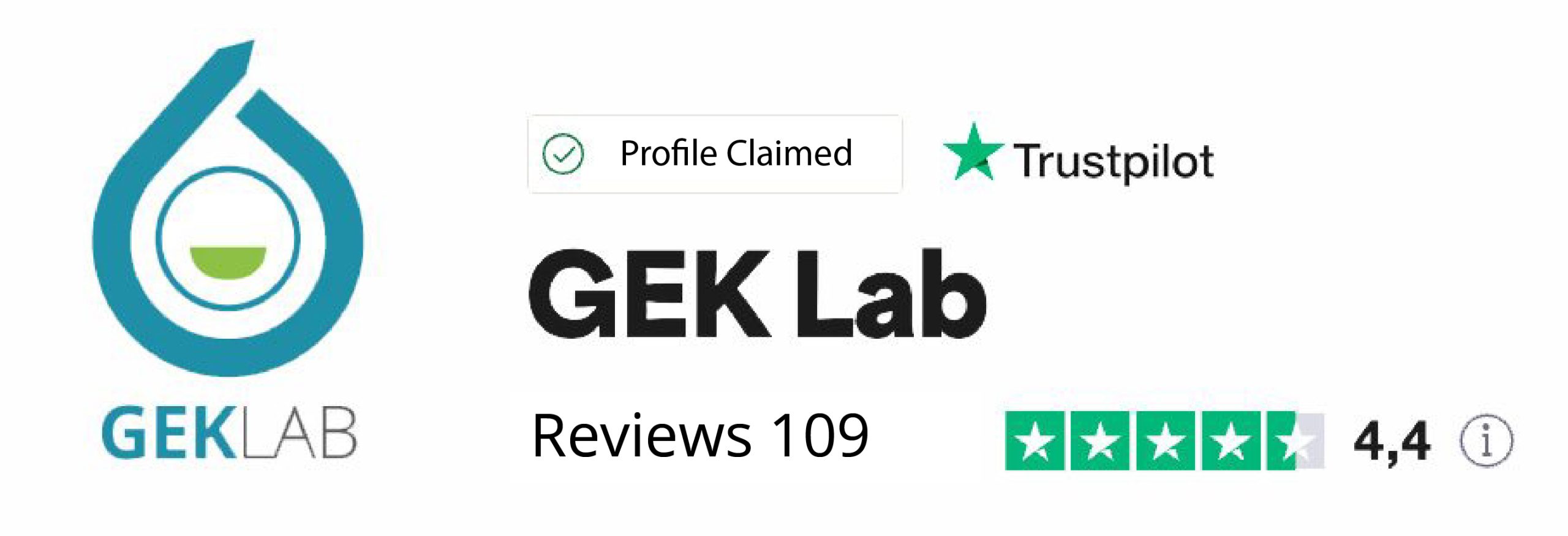Recurring headache?
It could be due to inflammation
Do you suffer from recurring headaches, seemingly without a clear cause?
Chronic headaches and migraines may be caused by a silent inflammatory state related to diet.

- Recurring headaches
- Unclear causes even after tests and investigations
- More intense and frequent episodes
- Impact on overall quality of life
- Often multifactorial causes
- Generalized inflammation related to foods
- Generalized inflammation related to sugars
- Stress and lack of sleep
Resolve with the PerMé Medical Program

Simple test, clear results
- The inflammatory status related to sugars (Methylglyoxal, a biomarker of oxidative stress)
- Early sugar-related damage (Glycated Albumin)
- Excessive exposure of the body to specific classes of foods (IgG)
- The level of the body’s inflammatory status related to foods (BAFF and PAF)
- If you are consuming an excess of sugars or certain types of foods
- If this excess is causing a latent inflammatory state, which could be the cause of your migraines,
- How to rotate foods in your weekly diet to fight chronic headaches.
- Reduction of symptoms
- Decreased frequency of episodes
- Improved energy and well-being
- More mindful eating
- Your diet is too heavily focused on sugars or carbohydrates
- There is a latent inflammatory state caused by sugars or repeated/excessive consumption of certain foods
- You are genetically predisposed to diabetes, obesity, fatty liver, or autoimmune diseases







How does it work in practice?
Fill out the form and you will conveniently receive your personal kit at home, with everything you need to perform the test
The kit contains a clear, illustrated guide. The sample collection is simple, quick, and non-invasive: it only takes a few minutes
In the package, you will find a prepaid envelope for free sample pickup. We take care of everything.
In about 7 days, you will receive a complete medical report by email, highlighting the food groups that contribute to inflammation. Along with the report, you will also receive personalized dietary advice to improve your diet and address the symptoms..

Frequently Asked Questions
Yes. The test was developed by GEK Lab and is performed in their own laboratory. It is based on innovative and clinically validated markers, selected from the most recent scientific evidence. The test does not merely detect generic antibodies but measures the individual inflammatory response to specific food groups, providing a much more accurate and useful analysis for those suffering from chronic disorders such as cistitis. The Recaller Medical Program is currently used by doctors and nutritionists throughout Italy to personalize dietary therapies with a scientific, safe, and validated approach.
No, a medical prescription is not required.
The test can be ordered directly online and will be conveniently delivered to your home, along with all the instructions to collect the sample easily and safely.
However, if you are under the care of a doctor or nutritionist, you can share the test results with them to integrate the data into your treatment plan.
The report is clear, detailed, and designed for clinical use as well.
A diet tailored specifically for you, which monitors sugar intake and rotates—without eliminating—the foods you are sensitive to, helps reduce low-grade inflammation and, in turn, the frequency and intensity of migraine and headache attacks. The PerMè Medical Program assesses your inflammatory profile, enabling targeted nutritional interventions alongside pharmacological therapy.
Food-induced inflammation is an inflammatory condition caused by excessive or repeated intake of certain classes of foods. A rotation diet, which manages their gradual reintroduction throughout the week, can help reduce the inflammatory state and, consequently, the related symptoms. The medical report you will receive following the test includes all the recommendations for an anti-inflammatory rotation diet.
Sugar-induced inflammation is a dietary inflammatory condition driven by an individually excessive intake of sugars and sugar-like substances (such as alcohol, but also the sugars in fruit and even sweeteners). These substances can bind to proteins or other circulating molecules in the body, altering their structure and impairing their function. This process, known as glycation, leads to increased levels of glycated albumin and the production of methylglyoxal, a free radical capable of oxidizing body tissues. Both markers are measured in our report to assess the damage that sugars (and related substances) may cause.





